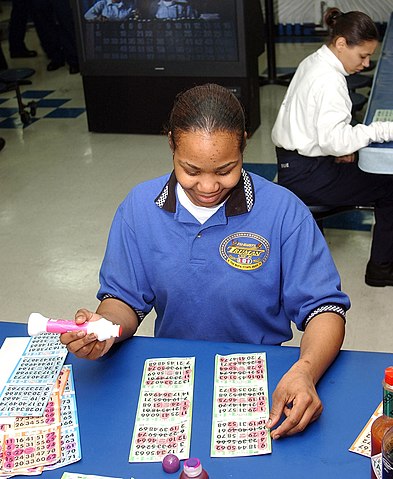What Drives the Popularity of Online Casinos?
 Popularity of Online Casinos
Popularity of Online CasinosEmerging Popularity of Online Casinos: A Deep Dive into the Future of Gambling
internet betting has witnessed a significant evolution in recent years, marked by the rapid rise in the popularity of online casinos. This phenomenon is not merely a reflection of technological advancements but also indicative of broader societal changes and shifting attitudes toward gambling.
That said, we will delve into the societal factors driving the increasing popularity of digital gambling, examining how changing lifestyles, cultural shifts, and technological innovations have contributed to the widespread adoption of digital gambling platforms.
Technological Advancements and Digitalization of Entertainment
The proliferation of remote casinos can be largely attributed to technological advancements and the widespread adoption of digital platforms for entertainment. With the advent of high-speed internet connectivity, smartphones, and digital devices, consumers have greater access to a wide range of online services, including gambling.
Online casinos leverage cutting-edge technology to deliver immersive gaming experiences featuring high-definition graphics, realistic sound effects, and interactive gameplay.
This level of sophistication has elevated online gambling to a level on par with traditional brick-and-mortar casinos, if not surpassing them in certain aspects. Moreover, the convenience and accessibility offered by online casinos appeal to modern consumers who value convenience and instant gratification.
Players no longer need to travel to physical casino locations or adhere to operating hours; instead, they can access their favorite games with a few clicks or taps anytime and anywhere.
This seamless integration of gambling into the digital realm aligns with broader trends toward digitalization across various industries, reflecting society's increasing reliance on technology for entertainment and leisure activities.
 Casino Card Players
Casino Card PlayersChanging Lifestyles and Leisure Preferences
Another significant factor contributing to the popularity of online casinos is the evolving lifestyles and leisure preferences of modern society.
In today's fast-paced world, where time is a precious commodity, many individuals seek convenient and flexible forms of entertainment that fit seamlessly into their busy schedules.
Online casinos offer a convenient solution, allowing players to indulge in gaming experiences without allocating dedicated time or travel to physical locations.
Furthermore, remote work and flexible schedules have blurred the boundaries between work and leisure, giving individuals more freedom to pursue recreational activities during non-traditional hours.
This shift has led to an increase in late-night gaming sessions and impromptu gambling sessions during downtime, further fueling the demand for online casino platforms that cater to round-the-clock gaming needs.
Moreover, the rise of digital nomadism and remote lifestyles has enabled individuals to work and travel simultaneously, transcending geographical boundaries and opening up opportunities for online gambling from virtually anywhere in the world.
This nomadic lifestyle aligns with the mobile nature of online casinos, allowing players to carry their favorite games wherever they go, whether on a beach vacation or a business trip.
 Playing Frisbee on a beach vacation
Playing Frisbee on a beach vacationSocial and Cultural Acceptance of Gambling
Over the years, there has been a notable shift in societal attitudes towards gambling, with it becoming increasingly accepted and normalized as a form of entertainment.
Whereas gambling was once stigmatized and associated with seedy backroom establishments, it has now become a mainstream leisure activity embraced by people from all walks of life.
This cultural shift has been facilitated by the portrayal of gambling in popular media, including movies, television shows, and advertisements, which often glamorize the thrill and excitement of casino gaming.
Moreover, the legalization and regulation of gambling in many jurisdictions have helped destigmatize the activity and position it as a legitimate form of entertainment and revenue generation for governments.
As a result, people are more inclined to openly discuss and participate in gambling activities, including online casinos, without fear of social ostracization or legal repercussions.
Additionally, the social aspect of online gambling has played a significant role in its popularity, with many platforms offering interactive features such as live chat, multiplayer games, and virtual communities.
These social elements simulate the camaraderie and excitement of a traditional casino environment, allowing players to connect with like-minded individuals and share their gaming experiences in real time.
Not only that, but nowadays, there are also a lot of casino games that are based on TV game shows like slingo deal or no deal slot game, wheel of fortune, etc. This sense of community, societal acceptance, and reference to pop culture fosters engagement and loyalty among players, contributing to the sustained growth of online casinos as social hubs for entertainment and social interaction.
Economic Considerations and Financial Incentives
From an economic standpoint, online casinos offer several advantages over their brick-and-mortar counterparts, both for players and operators. For players, online casinos often provide more favorable odds, higher payout rates, and lower overhead costs than physical casinos. This translates to potentially higher returns on investment and increased value for players' gambling budgets.
Moreover, online casinos frequently offer lucrative bonuses, promotions, and loyalty rewards to attract and retain players, providing additional incentives to choose digital gambling platforms over traditional venues.
These incentives may include welcome bonuses, free spins, cashback offers, and VIP programs, which can significantly enhance the gaming experience and add value to players.
For operators, the online format allows for greater scalability, lower operating costs, and access to a global audience of potential players.
Without needing to maintain physical premises, hire staff, or invest in expensive infrastructure, online casinos can allocate resources more efficiently and pass on the cost savings to players through better odds and promotions.
Additionally, the global reach of online casinos enables operators to tap into diverse markets and cater to players from different regions and demographics, further expanding their customer base and revenue potential.
Final Words on the popularity of Online Casinos
The rising popularity of online casinos reflects a convergence of technological, social, and economic factors shaping modern society's attitudes towards gambling.
As digitalization continues transforming how we live, work, and entertain ourselves, online casinos are poised to remain a prominent and preferred destination for gaming enthusiasts worldwide.
By offering unparalleled convenience, immersive experiences, and lucrative incentives, online casinos have firmly established themselves as a mainstream form of entertainment, ushering in a new era of digital gambling culture.
Your second block of text...

You Might Like These
Kentucky Derby Odds: Will there be a hometown favorite?
Preakness Stakes Odds: Will the champions face fresh challengers?
Belmont Stakes Odds: At 1½ miles, stamina becomes the great equalizer as longshots can threaten.
Breeders' Cup Odds: International talent collides with American speed, reshuffling expectations across the board.
Dubai World Cup Odds: Under desert lights, can a Japanese sensation prevail against the world's elite.
Pegasus Cup Odds: Retirement beckons for champions seeking one final payday at America's richest race.
Bet on Horses: Every wager tells a story of hope against mathematical probability.
Kentucky Derby Betting: Beneath fancy hats and mint juleps, fortunes change hands with each thundering hoof.
Preakness Stakes Betting: The middle jewel rewards those who recognize when Derby form holds true.
Belmont Stakes Betting: Distance separates champions from pretenders when the final furlong tests them all.
Breeders Cup Betting: Global racing converges for two days where value hides in plain sight.

Returns Policy: Once a customer has agreed to pay for a product or service no returns will be permitted or payments returned.
All PayPal transactions are subject to the PayPal Privacy Policy
Privacy Policy: Personal details provided to this site by an individual may be shared with third parties unless requested otherwise.
Above policies updated 15 March 2018





